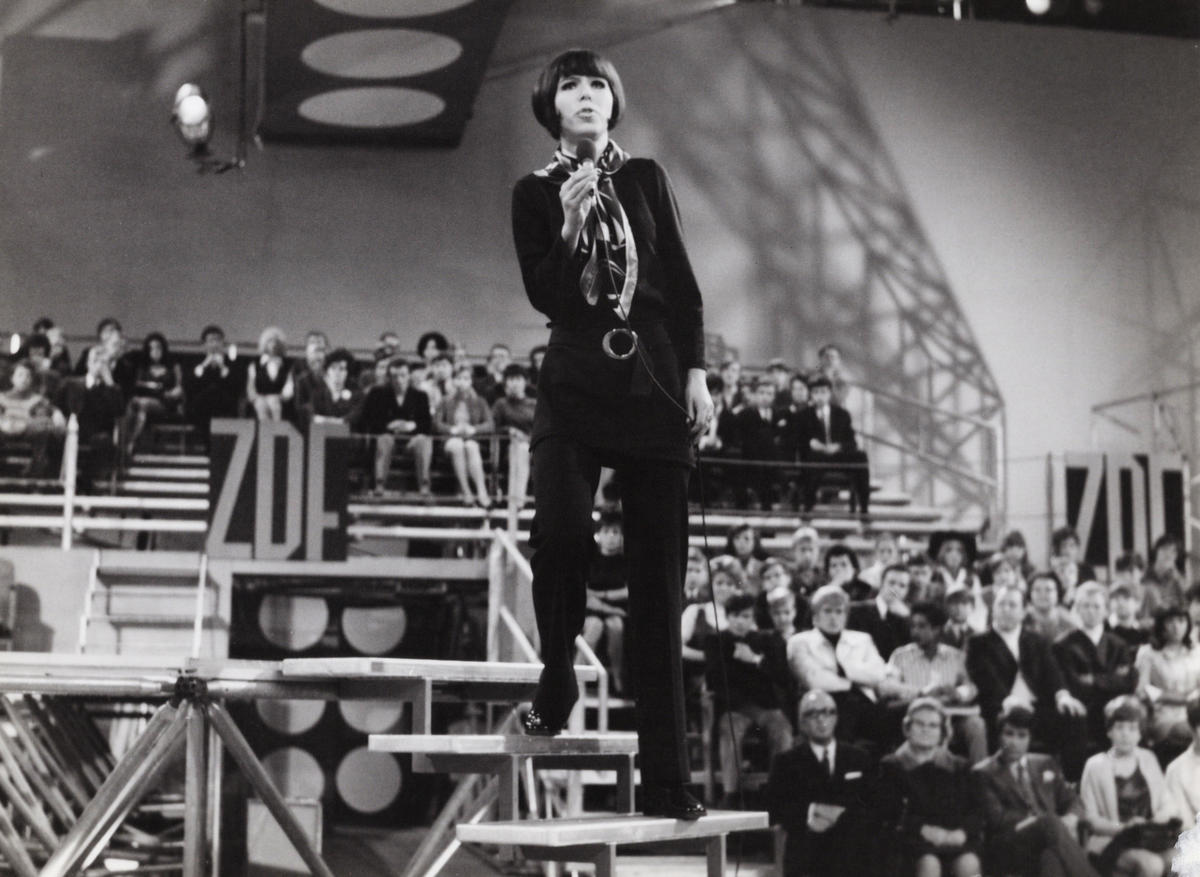Alexandra: A West German Singer Longs for the Lost East (1969)
Abstract
Alexandra, born Doris Treitz (1942-1969), was a well-known pop singer in West Germany in the late 1960s. She was born in the Klaipėda region (German: Memelland), which is now part of Lithuania. Her family fled west at the end of the Second World War, and Treitz spent much of her childhood in Kiel. Many of her songs relate to the former German East, either with respect to their theme or their folkloric style. “First Dawn” [“Erstes Morgenrot”] expresses how every dawn brings a reminder of the loss of her homeland. Although Alexandra was not directly involved in expellee politics, her romanticization of the East (and elision of Jews) reflects her personal and collective remembrance of Heimat. Alexandra died in a car accident in 1969 at age twenty-seven.
The photograph below from 1969 shows Alexandra performing in one of the very first broadcasts of ZDF-Hit Parade, a popular and long-running West German television music show.
Source

Source: German singer Alexandra, Germany 1969. Photographer: United Archives / kpa / Grimm
© picture alliance/ United Archives
Further Reading
Alon Confino, “‘This Lovely Country You Will Never Forget.’ Kriegserinnerungen und Heimatkonzepte in der westdeutschen Nachkriegszeit,” in Das Erbe der Provinz. Heimatkultur und Geschichtspolitik nach 1945, edited by Habbo Knoch. Göttingen: Wallstein, 2001, pp. 235–51.